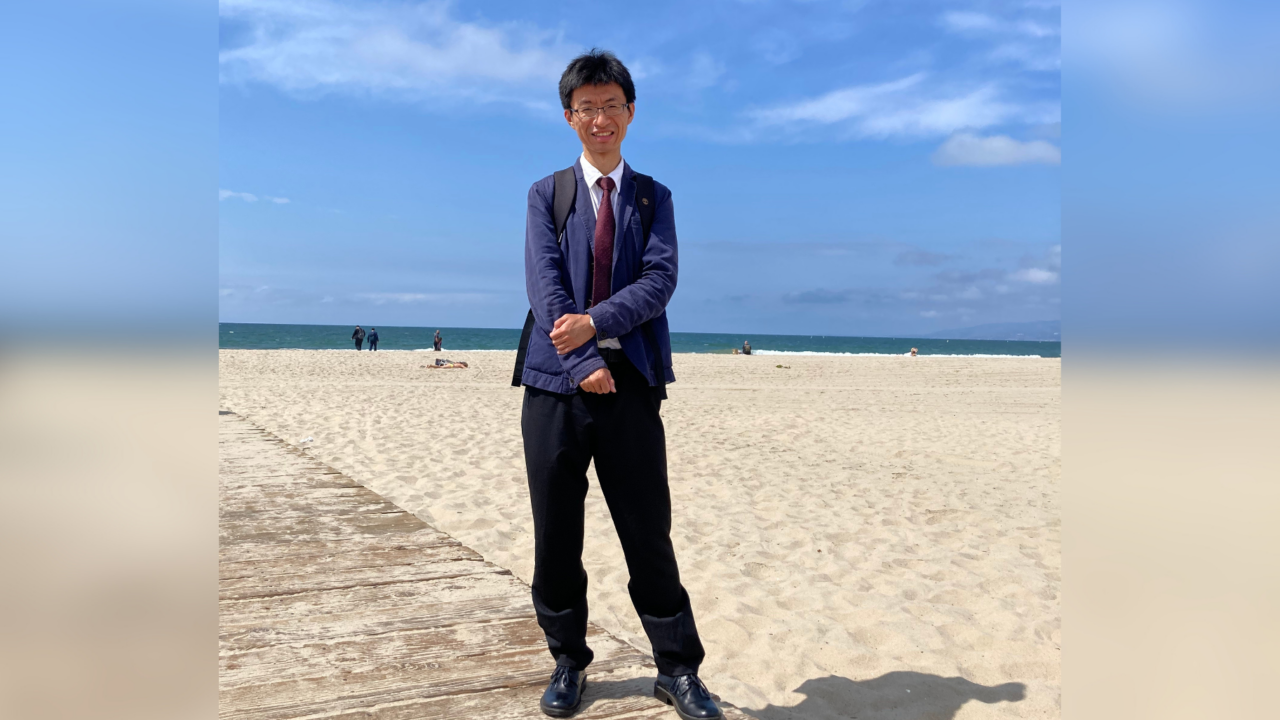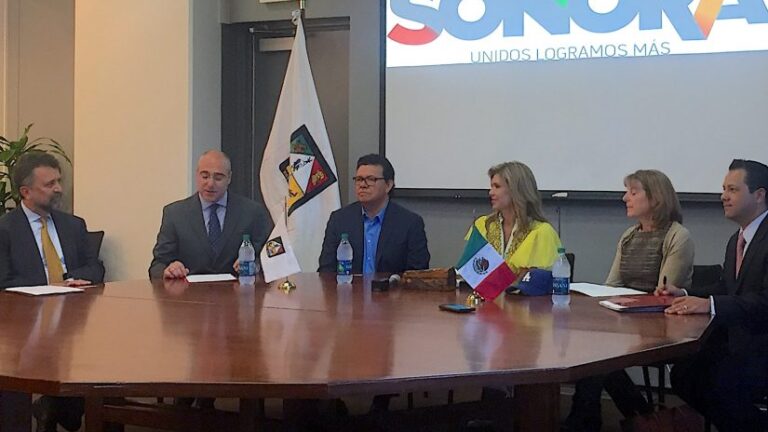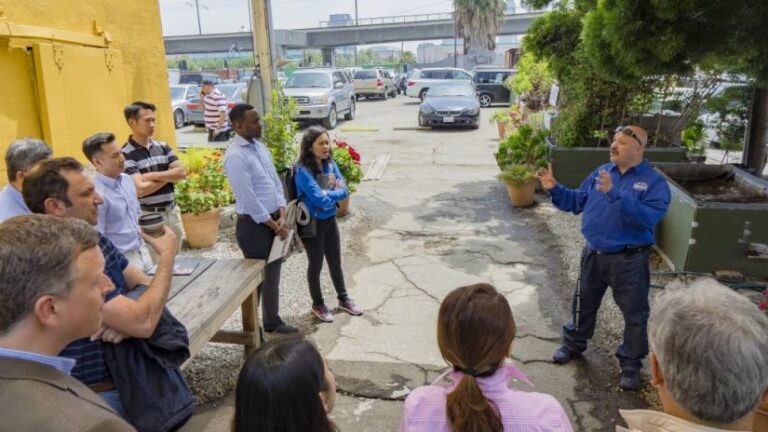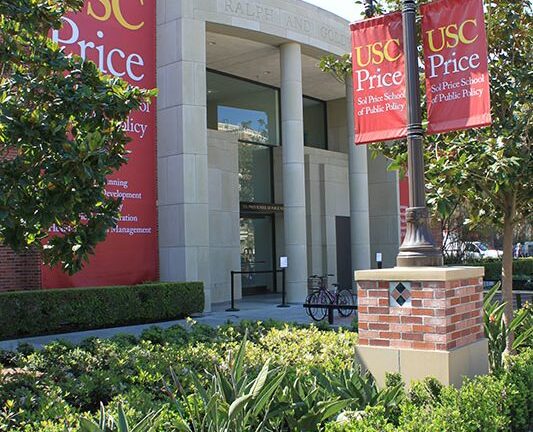
Photo: Courtesy of Zhijun Frank Gao
International Alumnus Explores the Global Importance of Local Policies
An expert in U.S.-China relations, Zhijun Frank Gao observes that everyone has irreplaceable assets for contributing toward a better world.
The United States’ relationship with China is complex, often contentious — and ultimately interdependent. As an assistant research fellow at the Chinese Academy of Social Sciences, Zhijun Frank Gao analyzes the economic dynamics of both countries. He also evaluates policy effectiveness and explores ways to bolster developing nations.
A proud international alumnus of the USC Price School of Public Policy’s Master of Public Administration (MPA) , the 2012 graduate said he appreciates the MPA degree’s continuing relevance.
“A lot of what I learned at the Price School 12 years ago can be directly applied to what I’m doing right now,” he noted. “No matter which policies you’re analyzing, or whether they’ll be implemented in the United States or China, a lot of aspects are essentially the same — such as feasibility studies, talking with different stakeholders, gathering data or presenting your evaluation.”
Gao developed his passion for public administration while growing up in Xinjiang, an autonomous region in northern China.
“It’s home to a lot of minority groups, so the central government empowers local government officials,” he explained. “The local officials are the ones most familiar with the situation — especially in how diverse ethnic populations can work together for the collective good.”
In addition, Gao’s family life allowed him to soak up information about two vital sectors: economics and journalism. His parents had careers in finance, while his grandparents worked at a news agency.
So when the time came for college, Gao majored in public administration at the University of International Business and Economics in Beijing: “Those four years helped establish the foundation for I wanted to do in life.” And since many of the textbooks were in English, he was able to expand his language skills while gaining an understanding of Western approaches to public-sector issues.
Upon earning his bachelor’s degree, USC Price emerged as the clear choice for his MPA. Beyond USC’s high rankings, Gao was drawn to the school’s focus on improving life at the local — as well as global — level.
Noting the truism that “all politics are local,” Gao said, “I knew that understanding the intricacies at the local level would provide insights into how governments operate.” He also appreciated USC’s openness in encouraging free thinking and critical dialogue.
Gao’s own views include the belief that we all have a place in promoting global harmony. Invoking the economic term “irreplaceable assets,” he noted that “each of us can either do things that other people cannot or can accomplish them more effectively.”
The key, he explained, is to find those skills so they can be honed: “That can be a beautiful process, especially with a guide who helps you find your irreplaceable assets.”
Such guidance was part of what Gao most valued about his time at USC Price, so he relishes any opportunity to mentor new generations of MPA students through online technology. This includes participating in the Price Professional Mentorship Program as well as sharing his experiences at a recent Trojan Talk.
In addition to the supportive faculty and illuminating courses, Gao’s time as an MPA student enabled him to build experience through an externship and internship. The former allowed him to engage with government officials and stakeholders. The latter let him gain expertise as a research intern by working for Kounkuey Design Initiative, a nonprofit devoted to improving lives in under-resourced communities in Africa, Latin America and the U.S.
Because he lacked work experience and was still new to the U.S., Gao turned to the Price Office of Career Services for help in winning the competitive internship. The staff not only helped revise his résumé and cover letter, but even staged a mock interview.
Obtaining that internship, Gao said, “was the first victory in my career path, and it meant a lot.”
Before completing his MPA, Gao received an offer to pursue his PhD at Claremont Graduate University. But first, he returned to his hometown to build more job experience at China’s largest commercial bank.
“Banking in China has a very close relationship to the government, so working there helped reinforce my knowledge and skills,” he said. During that time, he also built on his experience as a USC Price teaching assistant to serve as an English lecturer at a local school.
While finishing his PhD back in Southern California, Gao became an adjunct faculty member at the University of Redlands, teaching courses in international business and the fundamentals of economics.
“Everything I achieved after graduation can be attributed to the education and training I received at the Price School,” he said.
As a member of USC’s global Trojan Family, Gao takes pride in the school’s commitment to connecting alumni with students. He hopes that the future will bring even more opportunities for USC Price graduates holding vital positions in 45 countries to convene across cyberspace in meeting urgent challenges with their irreplaceable assets.
“Our world is complicated, and we need international collaboration to address such issues as climate change and the debt crisis in developing countries,” Gao said.
Learn more about the Master of Public Administration (MPA) program at USC Price School of Public Policy today.



